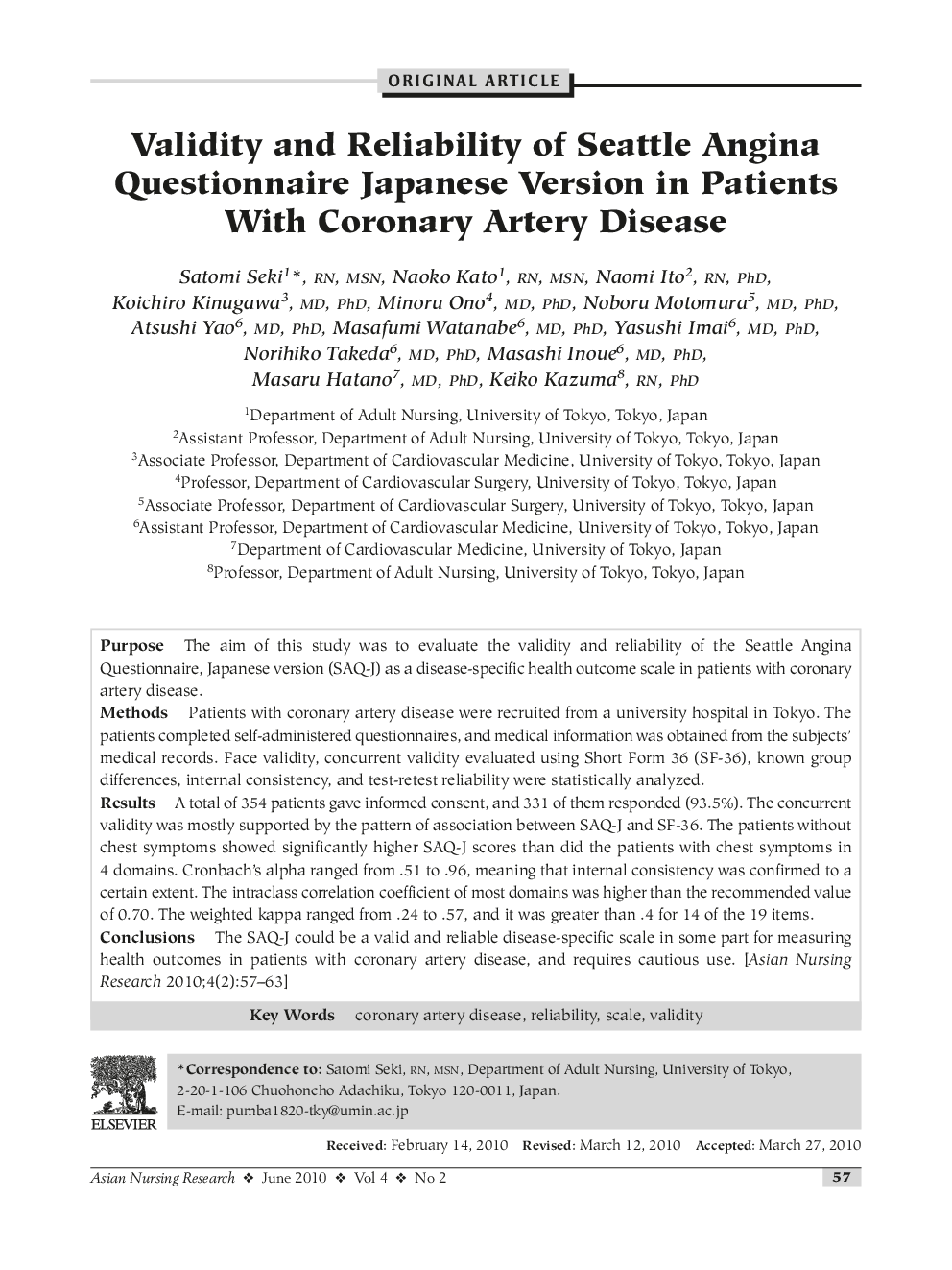| Article ID | Journal | Published Year | Pages | File Type |
|---|---|---|---|---|
| 2645485 | Asian Nursing Research | 2010 | 7 Pages |
PurposeThe aim of this study was to evaluate the validity and reliability of the Seattle Angina Questionnaire, Japanese version (SAQ-J) as a disease-specific health outcome scale in patients with coronary artery disease.MethodsPatients with coronary artery disease were recruited from a university hospital in Tokyo. The patients completed self-administered questionnaires, and medical information was obtained from the subjects' medical records. Face validity, concurrent validity evaluated using Short Form 36 (SF-36), known group differences, internal consistency, and test-retest reliability were statistically analyzed.ResultsA total of 354 patients gave informed consent, and 331 of them responded (93.5%). The concurrent validity was mostly supported by the pattern of association between SAQ-J and SF-36. The patients without chest symptoms showed significantly higher SAQ-J scores than did the patients with chest symptoms in 4 domains. Cronbach's alpha ranged from .51 to .96, meaning that internal consistency was confirmed to a certain extent. The intraclass correlation coefficient of most domains was higher than the recommended value of 0.70. The weighted kappa ranged from .24 to .57, and it was greater than .4 for 14 of the 19 items.ConclusionsThe SAQ-J could be a valid and reliable disease-specific scale in some part for measuring health outcomes in patients with coronary artery disease, and requires cautious use.
